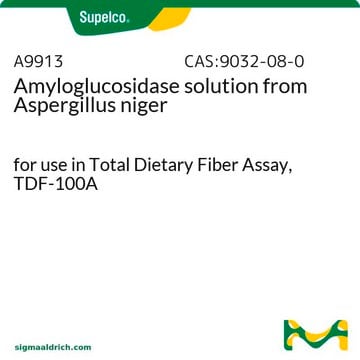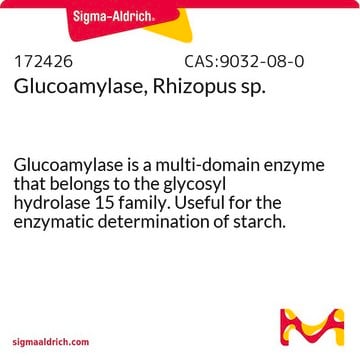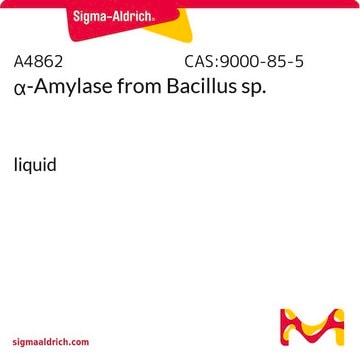A7095
Aminoglucosidasa from Aspergillus niger
≥260 U/mL, aqueous solution
Sinónimos:
1,4-α-D-Glucano glucohidrolasa, Exo-1,4-α-glucosidasa, Glucoamilasa
About This Item
Productos recomendados
biological source
Aspergillus niger
Quality Level
form
aqueous solution
specific activity
≥260 U/mL
density
~1.2 g/mL at 25 °C
storage temp.
2-8°C
¿Está buscando productos similares? Visita Guía de comparación de productos
General description
Amyloglucosidase is a disaccharidase−type alpha-glucosidase, produced by several species of Aspergillus genus. Immobilization of amyloglucosidase is known to increased its stability.
Application
Biochem/physiol Actions
Other Notes
Legal Information
signalword
Danger
hcodes
pcodes
Hazard Classifications
Resp. Sens. 1
Storage Class
10 - Combustible liquids
wgk_germany
WGK 3
Certificados de análisis (COA)
Busque Certificados de análisis (COA) introduciendo el número de lote del producto. Los números de lote se encuentran en la etiqueta del producto después de las palabras «Lot» o «Batch»
¿Ya tiene este producto?
Encuentre la documentación para los productos que ha comprado recientemente en la Biblioteca de documentos.
Los clientes también vieron
Nuestro equipo de científicos tiene experiencia en todas las áreas de investigación: Ciencias de la vida, Ciencia de los materiales, Síntesis química, Cromatografía, Analítica y muchas otras.
Póngase en contacto con el Servicio técnico










